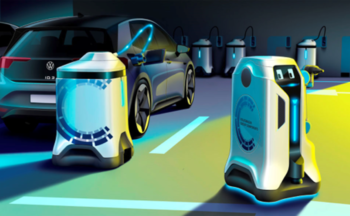 February 2023
February 2023
It is inevitable that the adoption of electric vehicles will grow. Governments are creating financial incentives making them more economical while manufacturers continue to improve on battery and other necessary technologies. Some automakers have announced their intent to discontinue production of internal combustion engines in the near future.
High-rise and condominium communities have a crucial role to play in the acceptance of electric vehicles. With more than half of Toronto’s population residing in high-rise buildings, there is a need for easy access to charging stations in high-rise homes.
Earlier government attempts at convincing high-rise condominium communities to embrace electric vehicle charging systems failed. Allowing reserve funds to pay for this upgrade without previously funding for them was correctly viewed as an unnecessary debt that would have to be repaid. A further problem was that available solutions were inappropriate for high-rise buildings.
Better and more effective solutions are now available.
Problems to Surmount
Few communities have sufficient capacity to support charging stations for more than a limited number of parking spaces. Accommodating even a limited number of stations could affect the amount of electricity available for other uses throughout the building. The high cost of upgrading a building’s electrical infrastructure to support a limited number of residents never made sense. Shared charging stations may offer a short-term solution so long as very few residents desire access.
Until recently, the only practical solution for many high-rise communities was to increase overall electrical capacity so that residents can install a charging station at their cost and convenience. The cost and complexity of doing this deters most communities.
A Smarter Approach
New electric vehicle charging technologies can work within existing building electrical capacities while providing service to a larger and growing number of electric vehicle owners. These systems are able to share available capacity amongst all vehicles connected to the system at a given time. They automatically adjust to provide more or less charging capacity to each vehicle without overwhelming total system capacity. As more electric vehicles are connected to the system, the amount of electricity provided to each is reduced. Charging takes longer so that all other electrical needs in the building are unaffected. As each vehicle is fully charged, the amount of electricity provided to other connected vehicles increase. Individuals charging vehicles overnight are unaware that it takes longer to achieve a full charge.
Now that a practical solution is available, more communities are expected to embrace electric vehicle charging.
Find Vendors in these Related Categories
- Automobiles - Rentals
- Building Sciences
- Contractors - Electrical
- Electric Vehicle Charging Systems
- Energy Services
- Energy Services - Efficiency
- Energy Services - Electricity
- Energy Services - Gas
- Energy Services - Water
- Engineering Services
- Parking Equipment & Revenue Systems
- Parking Management/Cleaning Services
- Pressure Washing






